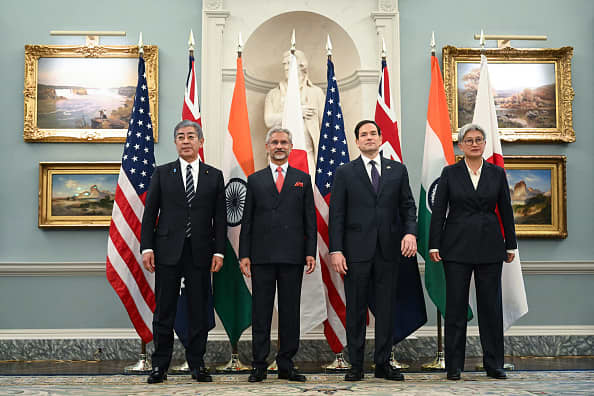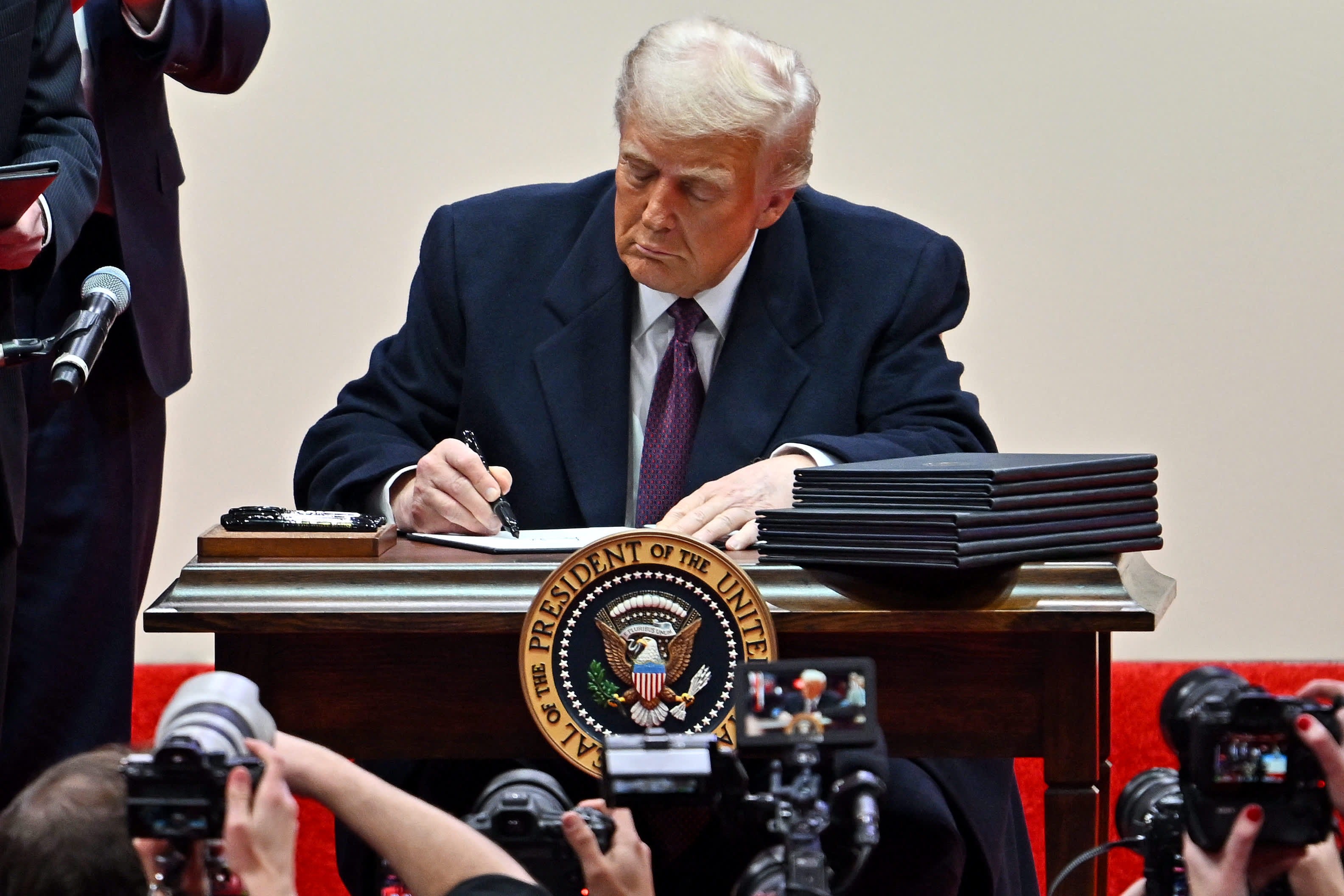'Asma al-Assad is glamorous, young and very chic – the freshest and most magnetic of first ladies.’
So began Vogue magazine’s gushing profile of Syria’s ‘dynamic’ presidential spouse, dubbing her a ‘rose in the desert’ who was ‘on a mission to create a beacon of culture and secularism’ in the otherwise troubled region.
Blessed with both brains and beauty, she was apparently a ‘thin, long-limbed beauty with a trained analytic mind who dresses with cunning understatement’. It was March 2011, and Asma was living a sort of dream.
Born and raised in London, she’d married a dashing prince, in the shape of the country’s president, Bashar, roughly a decade earlier. Now, she divided her time between raising their three children and attempting to turn Syria into a fashionable holiday destination. The taste-makers at Vogue were smitten.
‘The first impression of Asma al-Assad is movement: a determined swath cut through space with a flash of red soles,’ they claimed. What’s more, the fashion magazine added, the lithe young mother eschewed Islamic head-scarves, drove her own SUV, wore Christian Louboutin shoes, and ran a ‘wildly democratic’ household.
Thanks to her hip influence, Syria was not only the ‘safest’ country in the Middle East, but also fast becoming the trendiest. She apparently wanted its six million young people to drive this bold modernisation process by becoming ‘active citizens’.
Then came the so-called Arab Spring. A few weeks after Asma starred in Vogue’s ‘Power Issue’ her husband’s troops began massacring those ‘active citizens’, kicking off a bloody civil war that would see 600,000 Syrians killed and millions made homeless.
In a few months, Assad became a byword for human rights abuse and the endorsement of chlorine and sarin gas attacks, along with the rape, abduction and torture of opposition activists. On several occasions, the president’s forces laid siege to entire cities, causing widespread famine and forcing children to eat grass.


Today, Asma is beginning a new life in Moscow thanks to one of her few remaining friends in high places: Vladimir Putin.
Like many a tale of rise and fall, the story of Asma al-Assad is one of greed, vanity and grotesque entitlement, culminating in an orgy of violence and destruction that has earned her a seat at the right hand of husband Bashar on the top table of modern war criminals.
It begins in the London suburb of Acton, where she was born in 1975. Father Fawaz Akhras was a Syrian cardiologist who worked in Harley Street. Mother Sahar was a diplomat at the country’s embassy.
Though her parents came from a conservative Muslim background, Asma had a secular education, at Queen’s College in Marylebone, where fees today are almost £9,000 a term (friends called her ‘Emma’) followed by King’s College London, where she graduated in 1996 with a degree in computer science and French literature.
She briefly worked at Deutsche Bank in New York, before taking a job at Morgan Stanley in the City, when her romance with Bashar brought her banking career to a premature close.
They met in London during the early 1990s, when the second son of Syria’s dictator Hafez was a gangly medical student studying to become an ophthalmologist. They became an item in 2000 after reuniting when Asma holidayed at her aunt’s home in Damascus. They married that year; she was 25 and her husband a decade older.
By then, Bashar’s prospects had significantly changed, thanks to the death in a car crash of his brother Bassel, who had been the intended heir to the country’s president.
When Hafez, who ruled with an iron fist for three decades, passed away later that year, Bashar assumed the presidency via a sham election in which his name was the only one on the ballot, receiving 99.74 per cent of the vote.


Initially, the couple paid lip-service to reforming the country. With the help of a swanky US PR firm, Brown Lloyd James, Asma embarked on an attempt to turn her homeland into a centre of culture, building vast art galleries and cultural parks.
Celebrities flocked to Damascus, including Angelina Jolie and Brad Pitt, Sting and Damon Albarn. The EU and UN were charmed, international money began to roll in.
But behind the modern facade, the Assads were old-school dictators who tolerated no political dissent and had little time for free speech or other Western fripperies.
When the civil war erupted, they hired the combative London law firm Carter Ruck to write ferocious letters to newspapers whose coverage of family affairs had displeased them.
Then came news of chemical weapon attacks, along with coverage of wider human rights abuses – around 13,000, including some children, were tortured and killed between 2011 and 2015 at Sednaya prison – that gradually turned Asma and her husband into international pariahs.
As the balloon went up, the ‘rose in the desert’ article was removed from the internet by Vogue, with Asma becoming famed as a sort of modern-day Marie Antoinette, shopping as her country burned.
In 2012, thousands of emails hacked by WikiLeaks revealed her to have spent £250,000 on 130 pieces of furniture in the first year of the conflict. To circumvent sanctions she sent her hairdresser shopping in Dubai and used an alias when ordering from Harrods.
Writing to a fixer in London, she jokingly called herself the ‘real dictator’ in the Assad household, asking for everything from the latest Harry Potter book to a £5,000 pair of Louboutin crystal-studded stilettos.
Fuelling the shopping spree was a grotesque irony: Syria’s civil war was turning out to be terrific news for Asma’s bank balance.
With humanitarian aid flooding into the county, UN agencies and relief organisations were forced to deal with a charity she herself had founded, the Syria Trust, if they wanted to deliver supplies via Assad-held territories.
By 2017, more UN funds were being channelled via the charity than any other single Syrian organisation, placing the first lady at the head of a vast network of patronage. Imposing sanctions against Asma in 2020, the US government dubbed her one of Syria’s ‘most notorious war profiteers’.
By then, Asma was once more being used as a propaganda tool by the Assad state media, having been diagnosed with breast cancer. Her treatment (she ‘patriotically’ went to hospitals in Syria rather than seeking care abroad) featured heavily on the presidency’s social media channels. Earlier this year it was reported that she had been diagnosed with leukaemia.
While the war may have ended in the destruction of her precious reputation, Asma remains stupendously wealthy. The US estimates that the family are worth $2 billion, their wealth concealed in numerous offshore tax havens and property portfolios.
Part of that has been used to purchase at least 18 luxury apartments in the City of Capitals complex, located in Moscow’s glittering skyscraper district, where eldest son Hafez has been studying for a PhD. This is where the Englishwoman who once was a ‘rose in the desert’ but is now better known as the ‘first lady of Hell’ has this week begun her new life of exile, in a gilded cage.












